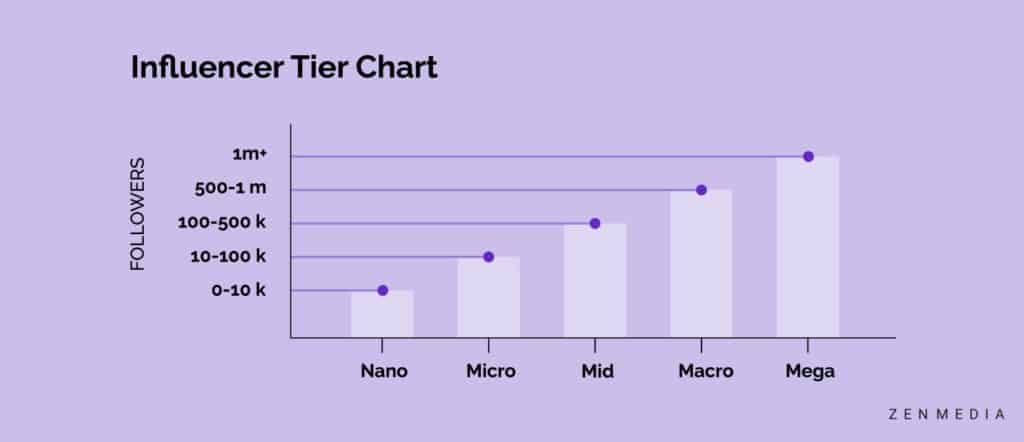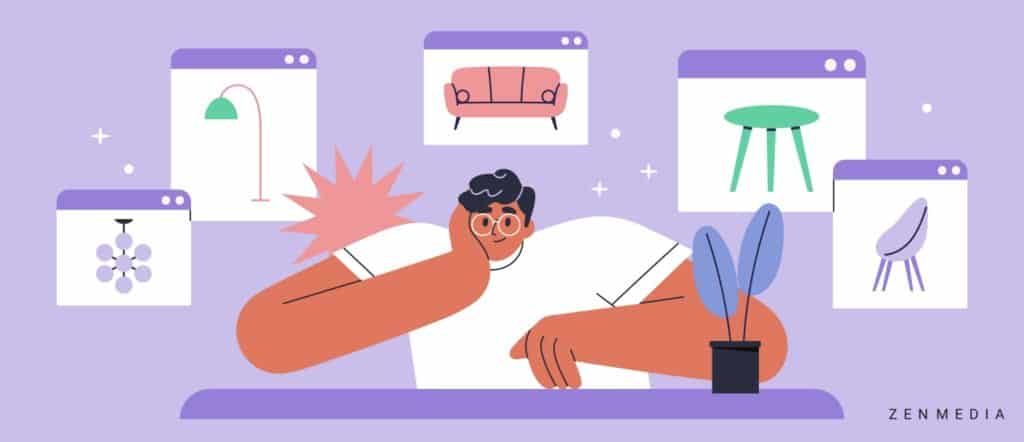In today’s fast-paced business landscape, B2B influencer marketing can be a real challenge, especially when it comes to promoting niche products. Smaller brands or brands with really specific audiences may feel they can’t keep up with larger brands’ marketing efforts. Not everyone can afford Zendaya as an influencer.
But niche B2Bs can still thrive with an influencer marketing strategy that helps their niche product or industry stand out and shine.
What qualifies as B2B niche marketing?
So what exactly is a marketing niche, and why is it so important in B2B influencer marketing? Simply put, a niche is a specific segment of the market that is targeted by a particular product or service. By identifying and targeting a specific niche, B2B marketers can more effectively reach and engage with their target audience.
While most B2Bs have several audience segments, and some have multiple niches, certain companies will find that they really only have one specific niche in the market with a highly homogenous audience.
There is a misconception that influencer marketing isn’t effective for niche companies. The thought is that you need to have a large and varied audience to get real value from influencer relationships—but this couldn’t be further from the truth. While broader B2Bs can certainly benefit from influencer marketing, a key aspect of influencer marketing strategy is niche-ing down audience segments to identify influencers that speak to your specific niche. For this reason, B2B influencer marketing can be incredibly effective and a great use of funds for niche companies.
In this article, we’ll dive into the ins and outs of B2B influencer marketing for niche products, including understanding niche marketing, creating successful B2B influencer marketing campaigns, and how to get the most out of your B2B influencer partnerships. So sit back, relax, and get ready to learn how to take your niche product or company to the next level with B2B influencer marketing.
Benefits of B2B Influencer Marketing for Niche Products
Influencers are seen as trusted experts by their followers, and by partnering with them, B2B brands can tap into that trust and establish themselves as credible and trustworthy within their niche market. After all, getting an endorsement from a well-respected influencer in a specific niche goes a long way in convincing prospects about the value of your product.
Beyond building awareness with the influencer’s audience, niche influencer marketing campaigns can also help B2B brands generate leads. Influencers can encourage their followers to visit your brand’s website, and they can use a unique and trackable link so you can gauge how many of your website visitors tie to your influencer campaign.
These are just a few of the benefits of developing and executing a successful B2B niche influencer marketing campaign. How can B2B marketers ensure their niche B2B marketing strategy reaches its goals?
- Focus on micro-influencers.
- Create long-term partnerships with influencers.
- Focus your time and investment on a few key players.
1. Focus on nano- and micro-influencers.
Nano- and micro-influencers are niche-specific experts with a highly engaged following. Nano-influencers typically have under 10K followers, and micro-influencers typically have under 100K. Both have a deep understanding of their niche market and the pain points of their audience. By partnering with nano- and micro-influencers, B2B brands can reach a highly targeted and engaged audience that is more likely to be interested in their niche product or service.

Nano- and micro-influencer partnerships are also often more cost-effective than working with big-name influencers. As micro-influencers have a smaller following, they typically charge less for their services, making it more affordable for niche B2B brands to partner with them.
Executives may worry about follower counts but remember: it’s better to have a smaller number of incredibly engaged followers than a large number of less-engaged ones. It’s proven that micro-influencers generate up to 60% more engagement than macro-influencers, so don’t be afraid to think small.
2. Create long-term partnerships with influencers.
When it comes to B2B influencer marketing, particularly for niche products, long-term influencer partnerships allow B2B brands to establish a deeper and more meaningful relationship with their influencer partners. This can lead to more authentic and effective promotion of the brand’s products or services, as the influencers will have a deeper understanding of how the products or services solve their audience’s problems.
Additionally, long-term influencer partnerships can help B2B brands build trust and credibility with their target audience. Influencers who have a long-standing relationship with a brand are more likely to be seen as truly invested in the brand rather than pay-per-play advocates, which will give their endorsement more strength, trust, and credibility.
Long-term influencer partnerships also help B2B brands maintain a consistent presence in their niche market. By working with the same influencers over an extended period of time, B2B brands can ensure that their target audience is consistently exposed to their niche products, which can help to increase brand awareness and drive sales. By consistently working with influencers to promote their niche products, B2B brands can gain visibility and credibility, and drive more traffic to their website, which can lead to an increase in leads and customers.
3. Quality of quantity: develop relationships with a few key players.
When it comes to B2B influencer marketing, especially for niche products, using a smaller number of key influencer partnerships is crucial for success. It may be nice to see your brand all over with many influencers, but trying to coordinate a multitude of people will quickly turn into herding cats. Plus, the broader you go, the more you run the risk of working with influencers that don’t reach your target audience. Your time and dollars are better spent making sure your key audience learns about your brand from industry experts time and time again, rather than everyone learning about your brand a time or two from a wide variety of influencers.
By carefully selecting a small group of influencers who have a following within the specific niche market, B2B brands can more effectively reach and engage with their target audience, creating frequency bias with those that may actually convert.
As marketers, building frequency is key to making conversions. Frequency bias creates familiarity. Things that are familiar to us feel safe, and when something feels safe, we are more likely to trust it.
Related Reading: Here’s Why Consistency Is Key When It Comes To Your Brand
When we see the same brand over and over—specifically when it comes from someone we trust, like an expert in the field or a well-known influencer—we assume that because we see the brand consistently, it must be the most credible. This compels us to choose it over other brands we are less familiar with.
Visibility (frequency bias) leads to credibility (trust), which leads to profitability (conversions).
B2B influencer marketing for niche products can be a powerful tool for reaching a highly targeted and engaged audience. By identifying and targeting a specific niche, B2B marketers can more effectively reach and engage with their target audience, establish thought leadership, increase brand trust and credibility, and generate leads. Brands can focus on a few key players, create long-term partnerships with influencers or develop relationships with micro-influencers to achieve these goals. Ultimately, by understanding the importance of niche marketing and leveraging influencer partnerships, B2B brands can take their niche product or industry to the next level.
This is exactly what happened with our client, TrueLook.
B2B influencer marketing with a super niche client
TrueLook, a B2B company specializing in job-site surveillance, sought to increase brand awareness and promote the launch of their new commercial camera for construction sites. We developed a targeted B2B influencer marketing campaign using Instagram, TikTok, and YouTube.
TrueLook has an incredibly niche product, and initially, we had concerns about finding construction-camera-related influencers, but this was a lesson that there truly is an influencer out there for everything. We selected three influencers from a pool of more than 80.
Our influencers varied in audience size, but none had more than 150k followers on a single platform, and all three fell in the Mid- and micro-influencer categories.
Our three influencers proved to be highly influential, resulting in a massive uptick in TrueLook’s followers across their organic social, increased website traffic, over half a million impressions, and more than 500 high-intent leads. The result was incredible, especially considering how specialized the product is and the low visibility the brand had prior to the campaign.
On top of the value for TrueLook, our influencers also saw an uptick in their own audiences, with our Youtube-specific influencer gaining nearly 9000 followers over the course of the digital campaign (increasing their reach from 23.8k to upwards of 32.7k). B2B Influencer marketing can produce highly beneficial relationships that improve the reach and awareness of the influencer and the company they partner with.
No company is too niche to benefit from working with a B2B influencer marketing agency.
Looking for help with your B2B influencer marketing campaign? Reach out.




